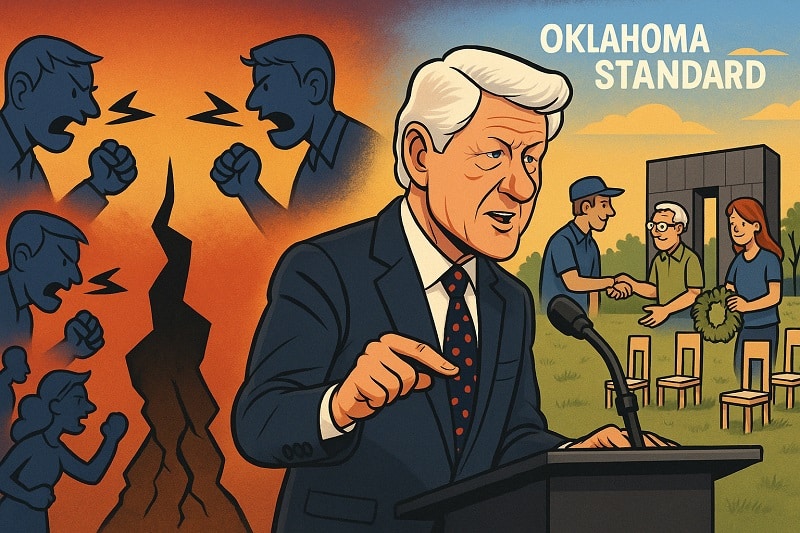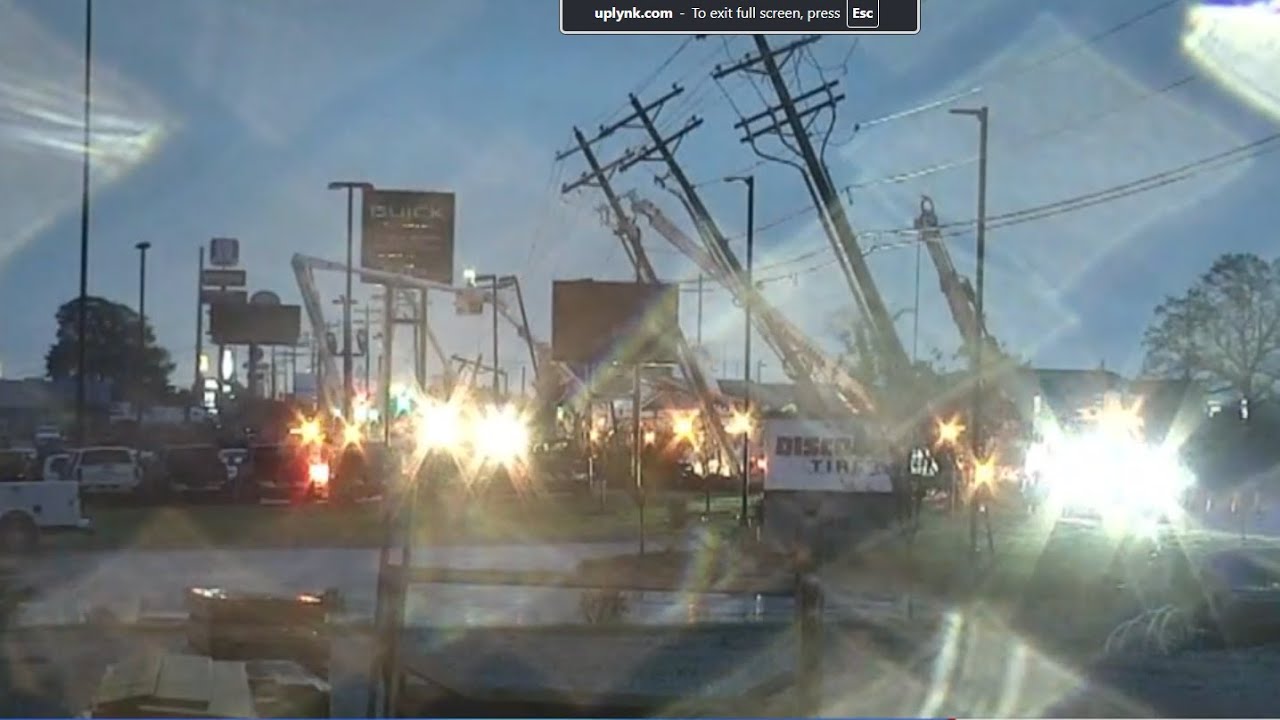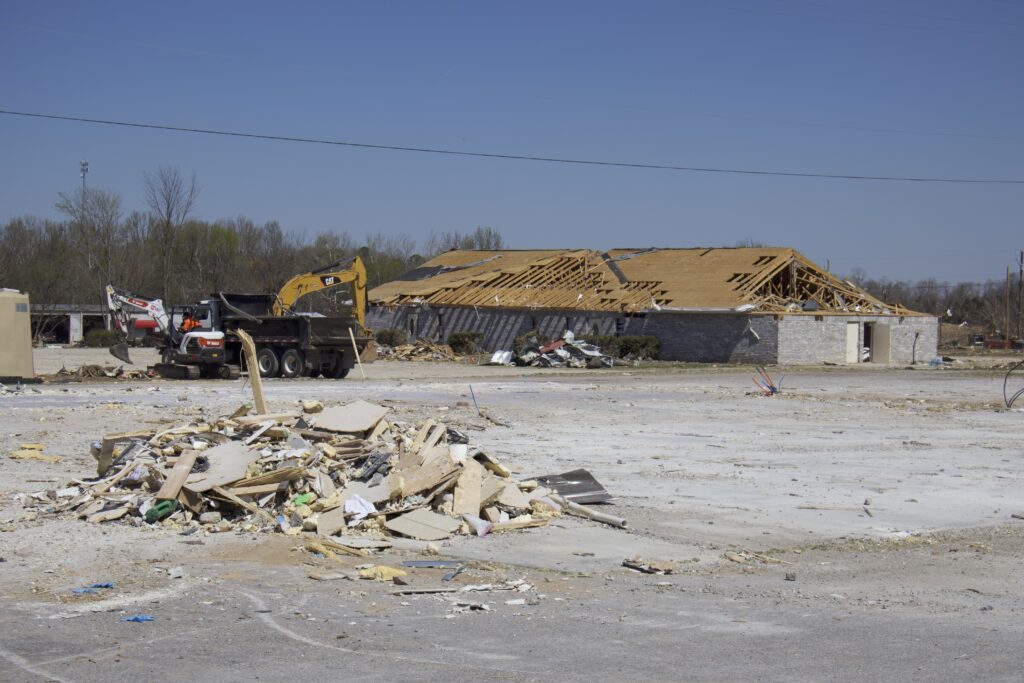News from the South - Arkansas News Feed
The AP and Trump administration renew court fight over White House press access

by Ashley Murray, Arkansas Advocate
March 27, 2025
WASHINGTON — The Associated Press and the Trump administration delivered arguments in federal court Thursday in a case that could alter decades of established press access in the White House.
U.S. District Judge Trevor McFadden for the District of Columbia heard details from the AP’s White House reporter and photographer about their exclusion for the last 44 days from joining their competitors and peers in witnessing President Donald Trump’s events in the Oval Office.
The two journalists, and other AP reporters, have also been refused entry to most larger White House events, including in the East Room, and the tarmac for Air Force One departures.
The AP, which has been a member of the White House press pool since the 19th century, maintains that the sudden ban violates its First Amendment and due process rights and has hurt its competitiveness as a wire service that reaches thousands of newsrooms.
The AP continues to have access to the daily White House press briefings and the driveway near the West Wing entrance, along with over 1,000 other journalists who have “hard passes” to the general White House complex — an argument Trump officials have made to prove they are not altogether banning the wire service.
The news organization is seeking a preliminary injunction mandating the administration immediately cease barring the AP from events that are open to a limited number of credentialed press and rescind its policy excluding the outlet from the smaller daily White House press pool. Such an action would likely last until a final judgment is reached.
McFadden, who was appointed to the D.C. Circuit by Trump in 2017 and confirmed by the Senate in a 84-10 vote, asked the parties to halt any other evidence submissions so that he can rule in a timely manner.
At a hearing Feb. 24, McFadden rejected the AP’s request for a temporary restraining order that would have required the White House to immediately restore its access to the Oval Office, Air Force One and other places.
‘The president wasn’t happy’
White House chief correspondent Zeke Miller testified that Trump’s press secretary, Karoline Leavitt, summoned him on Feb. 11 to say “the president wasn’t happy” that the AP continued to use the name Gulf of Mexico after he had ordered the U.S. coastal waters should be called the Gulf of America.
“He had decided we wouldn’t be permitted into the Oval Office if we didn’t change our policy and that we should ‘act quickly’ to (change it),” Miller recalled of Leavitt’s message.
The AP has not changed its style guidance because the Gulf of Mexico shares borders with Mexico and Cuba, and the AP’s coverage reaches global clients and readers that have recognized the body of water as the Gulf of Mexico for centuries.
When asked by the AP’s legal counsel if the new policy has chilled the AP’s coverage, Miller said “undoubtedly our reporting has suffered.”
Miller, a White House reporter for just over 12 years, said before Feb. 11 he would regularly see his own news alerts pop up on his cell phone “while the event was still going.”
The wire service, which transmits news and photos in near real-time to subscriber members around the world, is now spending time independently verifying reports from other outlets or relying on delayed video feeds that do not show who else is with the president or his environment, Miller said.
“We don’t know what those other outlets are including or not including,” he said, especially when those outlets may fear the “viewpoint discrimination” the AP contends it’s faced from the Trump administration.
Miller testified neither he nor his White House colleagues have been permitted with other reporters in the Oval Office since Feb. 11, and that they have only been intermittently admitted to press conferences with foreign leaders or ceremonies in larger spaces, including the East Room, which can hold over 100 journalists.
The news outlet has had to fly its foreign correspondents to the United States to be part of the foreign press permitted in the Oval Office during visits from Ukrainian President Volodymyr Zelenskyy, French President Emmanuel Macron and British Prime Minister Kier Starmer, according to the news organization.
While the White House has admitted AP photographers to some events in the East Room, they’ve been shut out of others.
Evan Vucci, the AP’s chief Washington photographer, testified “there’s no rhyme or reason.” The “only thing that’s consistent” is that the AP has been targeted, Vucci said.
White House defense
The government called no witnesses but instead filed a last-minute supplemental declaration Wednesday from Taylor Budowich, White House deputy chief of staff and Cabinet secretary, and lead defendant in the case.
The AP moved to strike the declaration Wednesday, arguing the judge had ordered live witnesses, but McFadden denied the motion Thursday.
Budowich contends the wire services, TV and radio correspondents and print reporters that comprised the smaller press pool “under the old system continue to be eligible for pool selection in the new system.”
Leavitt announced Feb. 25 that going forward, the White House would choose which journalists can access the Oval Office and Air Force One — breaking decades of agreement between numerous administrations and the White House Correspondents Association.
The independent group, made of journalists, has self-governed since the Eisenhower administration, operating on the principle that the press corps, not the president, should determine the makeup of the press pool that accompanies the president almost everywhere.
Under the new pool system, White House officials “have been empowered to better perform their jobs by creating a pool that best serves the public by pairing the topics of each event with the reporters and audience who are most curious about them,” Budowich stated in his declaration.
But AP attorney Charles Tobin said that argument “just doesn’t hold up.”
Showing the list of journalists chosen to be in the pool on Feb. 28 — the day of the explosive Oval Office meeting between Trump and Zelenskyy — Tobin pointed out that the White House had chosen The Los Angeles Times to be in the room.
But for the past several months, the LA Times’ coverage of Ukraine only consisted of republications of AP wire service feeds, he said.
By banning the AP, the White House is “shrinking” its reach to the public, argued Tobin, of Ballard Spahr law firm.
Tobin also said he doesn’t buy Budowich’s argument that the AP remains eligible to be chosen for the smaller press pool, pointing to the deputy chief of staff’s public social media postings and statements from other White House officials, all the way up to the president.
“If he’s saying it does not constitute a ban, then we don’t speak the same language because that’s exactly what he’s saying,” Tobin said.
In his closing statement, Brian Hudak, assistant U.S. attorney in the District of Columbia, said “we’re not saying they can’t publish (what they want), we’re just saying ‘You can’t go here.’”
Hudak also added that the president is well within his power to choose “a certain population of journalists” he wants to allow in the Oval Office and other spaces.
“I don’t think that offends the Constitution on the First Amendment side,” Hudak said.
How it started
President Donald Trump signed an executive order hours after his inauguration renaming the U.S. coastal waters along Florida, Alabama, Mississippi, Louisiana and Texas as the Gulf of America. He also reinstated the name of Alaska’s Denali mountain to Mount McKinley.
The AP, which issues editorial guidelines followed by journalists around the world, advised it would continue using the Gulf of Mexico with the notation that Trump had renamed the portion of water along the U.S. coast.
The outlet, however, issued guidance for journalists to use the name Mount McKinley because the president can rename locations fully within the U.S.
In an attempt to avoid litigation, the outlet’s executive editor, Julie Pace, contacted Trump administration officials to discuss the action against the AP. But the AP ultimately filed a lawsuit on Feb. 21 as the White House and Trump “doubled down” on the new policy, according to court documents.
White House Chief of Staff Susan Wiles told Pace in Feb. 18 correspondence that the AP Stylebook, a detailed online and print guide for reporters and editors, “has been misused, and at times weaponized, to push a divisive and partisan agenda,” according to court documents.
That same day, Trump said the White House would “keep (the AP) out until such time that they agree that it’s the Gulf of America.”
As of a March 3 court filing, the AP said it was still banned from the pool and wider events that other reporters — even at least one that didn’t sign up ahead of time — were permitted to attend in person.
The outlet wrote in the brief that it “has repeatedly explained to administration officials that government attempts to control the words that journalists use — and excluding those journalists and retaliating against them when they do not comply — are unconstitutional and contrary to the public interest.”
A March 17 declaration by Miller lists dozens of events covered by the press pool at the White House and during the president’s travel that the AP has been denied access to.
Barring journalists for what they write
The AP maintains the Trump administration violated the outlet’s Fifth Amendment protections when the White House, without written warning and avenue to challenge, barred its journalists for “arbitrary and viewpoint-discriminatory reasons” from locations and events open to other press.
The outlet has a liberty interest in exercising its First Amendment rights, the AP argued, and therefore must receive due process if the government seeks to take away that constitutional right. And, the AP points to precedent set by the D.C.Circuit that the liberty interest in exercising freedom of speech extends to newsgathering.
Quoting the 1977 D.C. Circuit ruling in Sherill v. Knight — a key decision repeatedly mentioned — the AP argued: “‘Not only newsmen and the publications for which they write, but also the public at large have an interest protected by’ the First and Fifth Amendments ‘in assuring that restrictions on newsgathering be no more arduous than necessary, and that individual newsmen not be arbitrarily excluded from sources of information.’”
In that case, the Circuit Court ruled that press credentials to the White House could not be denied without procedural protections and that “the protection afforded newsgathering under the First Amendment guarantee of freedom of the press requires that this access not be denied arbitrarily or for less than compelling reasons.”
But the White House argues that the AP has no liberty interest in “having special media access to the president.”
“The Associated Press’s journalists continue to enjoy the same general media access to the White House press facilities as all other hard pass holders and continue to occasionally have special access to the President. The Associated Press’s special access is simply no longer permanent,” according to the White House opposition brief.
Quoting from the 1996 case JB Pictures, Inc. v. Department of Defense, the White House argued “‘the First Amendment does not provide journalists any greater right of access to government property or information than it provides to members of the public, despite the fact that access to government information ‘might lead to more thorough or better reporting.’”
White House press officials also maintain that the president has discretion over which journalists join him in the “most intimate of his work and personal spaces.”
Press pool history
For decades the White House Correspondents Association has included in the daily pool three wire service reporters, from the AP, Reuters and Bloomberg; four photographers, from AP, Reuters, Agence France-Presse and The New York Times; and rotations of three TV network journalists, a radio correspondent and a print reporter, according to an amicus brief filed by the organization.
The wire services regularly included in the pool have the largest reach of all news outlets covering the White House, and is why the association structures the pool as it is, according to court filings.
Last updated 5:51 p.m., Mar. 27, 2025
Arkansas Advocate is part of States Newsroom, a nonprofit news network supported by grants and a coalition of donors as a 501c(3) public charity. Arkansas Advocate maintains editorial independence. Contact Editor Sonny Albarado for questions: info@arkansasadvocate.com.
The post The AP and Trump administration renew court fight over White House press access appeared first on arkansasadvocate.com
News from the South - Arkansas News Feed
As country grows more polarized, America needs unity, the ‘Oklahoma Standard,’ Bill Clinton says

by Emma Murphy, Oklahoma Voice, Arkansas Advocate
April 20, 2025
OKLAHOMA CITY — On the 30th anniversary of the deadliest act of domestic terrorism in U.S. history, former President Bill Clinton said Americans must unite despite their differences, and that Oklahomans can help lead the way by serving as that role model for the rest of the nation.
Clinton, who was president at the time of the attack, returned to the site of the 1995 Alfred P. Murrah Federal Building bombing Saturday to deliver the keynote address to a crowd of over 1,600 that attended to remember and honor those who died and were injured in the attack.
While the event is typically held outdoors at the Oklahoma City National Memorial and Museum, the site of the bombing, it was moved indoors due to inclement weather. The crowd that arrived to commemorate the anniversary was so large that once the pews were packed, people stood along the walls and filled an overflow room.
“The domestic terrorists who did this awful thing believed that it would spark a nationwide upheaval against the American government, and would eventually destroy our government, our democracy and our life,” Clinton said. “Instead, you gave them, as the mayor said so eloquently, the Oklahoma Standard. You gave them service, honor and kindness.”
Clinton, a Democrat, came to Oklahoma City days after the 1995 attack to address a devastated crowd assembled at the Oklahoma State Fair Arena. He said he’s returned to Oklahoma City in subsequent years to commemorate the event.
Three decades later, Clinton said that the country has again grown more polarized. When Oklahoma City was the “center of polarization” 30 years ago, it chose to move forward together, he said.
“America needs you, and America needs the Oklahoma Standard,” Clinton said. “And if we all live by it, we would get a fairer economy, a more stable society. We would understand one another, and we wouldn’t feel weak if we admitted we were wrong about something.”
Thirty years ago, a fertilizer and fuel oil bomb placed inside a Ryder truck outside the Federal Building in downtown Oklahoma City exploded at 9:02 a.m., killing 168 people, including 19 children, and injuring around 850.
Timothy McVeigh and Terry Nichols were arrested for their roles. Both were found guilty. McVeigh was executed June 11, 2001, by lethal injection at the Federal Correctional Complex in Terre Haute, Indiana. Nichols was sentenced to life in prison.
Michael Fortier was sentenced to 12 years in prison for failing to report his knowledge of the bombing plot.
Investigators said McVeigh held extremist views and planned the bombing on the anniversary of the end of the Waco siege between law enforcement and the Branch Davidians.
Other speakers at Saturday’s remembrance event included prominent Republican officials such as Oklahoma Gov. Kevin Stitt, former Gov. Frank Keating, and U.S. Sen. James Lankford. Oklahoma City Mayor David Holt also spoke. Most of Oklahoma’s congressional delegation was present, as were a few other former governors, current state lawmakers and other officials.
There have been nearly “11,000 tomorrows” since the bombing and in Oklahoma City, Holt said, and the city has grown in that time. He said 30 years since the bombing signifies a “generation.”
While younger Oklahomans may not remember the bombing, Stitt said, they live in a state shaped by it and the “commitment to service, honor and kindness” that followed.
Lankford said Oklahomans need to ensure the lessons learned from the bombing and its aftermath are passed to future generations to ensure there is “no generation that rises up that does not remember.”
The federal building housed agencies like the Drug Enforcement Administration, the Secret Service, and the Bureau of Alcohol, Tobacco, Firearms and Explosives, the agency that initially launched the Waco raid. But the building also held a day care, military recruitment offices and other various federal agencies.
Family members of victims read the 168 names to the crowd Saturday in an effort to “humanize” the people, said Kari Watkins, president and CEO of the memorial museum.
The building was imploded after the rescue operations and evidence collections were completed. A new federal building was built nearby.
The memorial was built where the old federal building once stood. The 168 chairs erected at the site each represent an empty seat at the dinner table. The smaller chairs represent the children who died. A reflecting pool represents the time between 9:01 a.m. and 9:03 a.m. April 19, 1995. Officials were able to preserve an American elm tree that survived the blast. It is known as the “Survivor Tree.”
In the aftermath of the attack, the state became known for the “Oklahoma Standard,” a term used to describe the “selfless actions” of thousands who offered help.
Reporter Barbara Hoberock contributed to this story.
Oklahoma Voice is part of States Newsroom, a nonprofit news network supported by grants and a coalition of donors as a 501c(3) public charity. Oklahoma Voice maintains editorial independence. Contact Editor Janelle Stecklein for questions: info@oklahomavoice.com.
Arkansas Advocate is part of States Newsroom, a nonprofit news network supported by grants and a coalition of donors as a 501c(3) public charity. Arkansas Advocate maintains editorial independence. Contact Editor Sonny Albarado for questions: info@arkansasadvocate.com.
The post As country grows more polarized, America needs unity, the ‘Oklahoma Standard,’ Bill Clinton says appeared first on arkansasadvocate.com
News from the South - Arkansas News Feed
Valerie Storm Tracker

SUMMARY: Severe weather overnight has caused significant damage, particularly in Springdale, where downed power lines are evident on Sunset Avenue. Valerie Xiong, reporting live from the 40/29 Storm Tracker, noted that multiple crews are on-site, working to repair the tilted power lines and blocking off traffic in the area. Police are redirecting motorists, and there have been power outages at several intersections, including Jean George Boulevard. Crews from various agencies are actively addressing the situation, and updates on road conditions and storm damage will continue to be provided.

Valerie Storm Tracker
Subscribe to 40/29 on YouTube now for more: http://bit.ly/PTElbK
Get more Northwest Arkansas news: http://www.4029tv.com
Like us: http://facebook.com/4029news
Follow us: http://twitter.com/4029news
Instagram: https://www.instagram.com/4029news/
News from the South - Arkansas News Feed
Arkansas governor appeals FEMA denial of disaster declaration from March tornadoes

by Advocate Staff, Arkansas Advocate
April 18, 2025
Arkansas formally appealed on Friday the federal government’s denial of funds to aid recovery from March 14-15 storms and tornadoes.
In a letter to President Donald Trump and FEMA Regional Administrator George Robinson, Gov. Sarah Huckabee Sanders asked the administration to reconsider its rejection of her requests for disaster declarations for individual assistance and public assistance.
“Arkansas communities are still recovering from this spring’s tornadoes, as the sheer magnitude of this event resulted in overwhelming amounts of debris, widespread destruction to homes and businesses, the tragic loss of three lives, and injuries to many others,” Sanders said. “To relieve the burden on these counties, cities, and towns, I am appealing FEMA’s decision to deny Arkansas’ Major Disaster Declaration request.”
Sanders originally sought the major disaster declaration on April 2; FEMA issued its denial on April 11.
Sanders’ letter notes that “without the support of a Major Disaster Declaration, Arkansas will face significant challenges in assuming full responsibility and achieving an effective recovery from this event. I
have determined that the severity and magnitude of these storms exceed the capabilities of the State and affected local governments to respond adequately. As such, supplemental Federal assistance is crucial.”
The state’s request includes Baxter, Stone, Sharp, Hempstead, Independence, Randolph, Nevada, Jackson, Clay, Woodruff, Greene, Hot Spring, Izard and Lawrence counties.
Trump earlier this year called the Federal Emergency Management Agency “a disaster” and suggested it “might go away.” He said states could take care of disaster responses on their own and convened a group to review the agency and recommended changes.
GET THE MORNING HEADLINES.
Arkansas Advocate is part of States Newsroom, a nonprofit news network supported by grants and a coalition of donors as a 501c(3) public charity. Arkansas Advocate maintains editorial independence. Contact Editor Sonny Albarado for questions: info@arkansasadvocate.com.
The post Arkansas governor appeals FEMA denial of disaster declaration from March tornadoes appeared first on arkansasadvocate.com
-

 News from the South - Alabama News Feed6 days ago
News from the South - Alabama News Feed6 days agoFoley man wins Race to the Finish as Kyle Larson gets first win of 2025 Xfinity Series at Bristol
-

 News from the South - Alabama News Feed6 days ago
News from the South - Alabama News Feed6 days agoFederal appeals court upholds ruling against Alabama panhandling laws
-

 News from the South - Missouri News Feed3 days ago
News from the South - Missouri News Feed3 days agoDrivers brace for upcoming I-70 construction, slowdowns
-

 News from the South - North Carolina News Feed5 days ago
News from the South - North Carolina News Feed5 days agoFDA warns about fake Ozempic, how to spot it
-

 News from the South - Virginia News Feed4 days ago
News from the South - Virginia News Feed4 days agoLieutenant governor race heats up with early fundraising surge | Virginia
-

 News from the South - Missouri News Feed5 days ago
News from the South - Missouri News Feed5 days agoAbandoned property causing issues in Pine Lawn, neighbor demands action
-

 News from the South - Oklahoma News Feed3 days ago
News from the South - Oklahoma News Feed3 days agoThursday April 17, 2025 TIMELINE: Severe storms Friday
-

 Mississippi Today5 days ago
Mississippi Today5 days agoOn this day in 1947, Jackie Robinson broke MLB color barrier













































